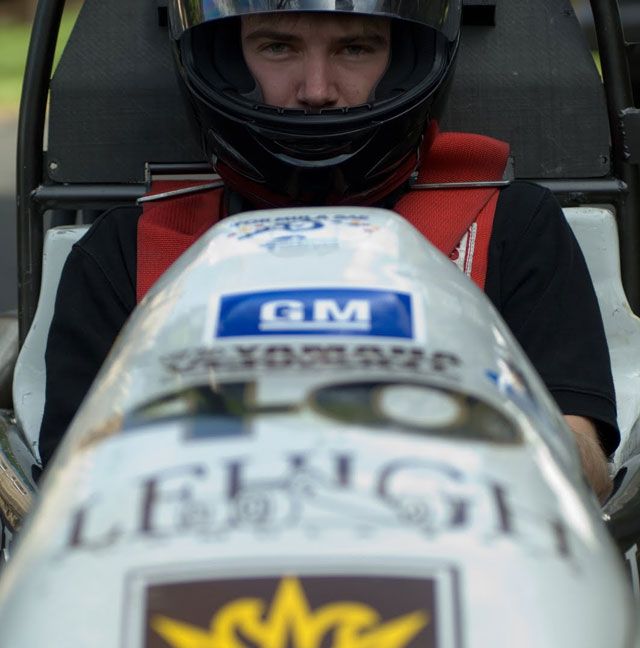Interested in joining Lehigh University's Mechanical Engineering Program? Apply today:
Mechanical engineers who graduate from Lehigh University go on to design, create and operate various types of machinery. They manage systems for energy conversion, material transport and the control of motions and forces.
Mechanical engineering is one of the broadest engineering fields, with professionals working in industries as diverse as aerospace, transportation, bioengineering, communications, electronics, computers, energy, environment, machinery and manufacturing.
Why Mechanical Engineering?
- Because you want to spend your days designing, creating and operating various types of machinery
- Because you want to apply your mechanical engineering knowledge to fields as diverse as aerospace, transportation, bioengineering, communications, electronics, computers, energy, environment, machinery and manufacturing
- Because you're fascinated by how machines work and what makes them tick
What Sets Us Apart
Lehigh's mechanical engineering program offers students a comprehensive education grounded in the fundamentals of the discipline while incorporating invaluable hands-on experience opportunities. Professors renowned for their research offer world-class instruction and access to research internships, co-op experiences and independent study projects. The program prepares students for satisfying and productive careers in a wide variety of fields.
Mechanical engineering students gain knowledge in areas such as solid and fluid mechanics, engineering materials, product design and manufacturing, thermodynamics and control systems. The manufacturing course required of all juniors exemplifies the department's hands-on approach to education. Using sophisticated engineering tools, teams of Lehigh students collaborate each year with local middle-school students to design, simulate, fabricate and produce a new manufactured product, like a plastic matchbox car or a new way to package toys. They use the department's CAD software, rapid prototyping facilities, computer numerical control milling and injection-molding machines. The course culminates with an annual expo, in which the students compete and are judged on product design and effectiveness.
Another course emphasizing hands-on experiences is Advanced Mechanics of Materials, a technical elective. Part of the aerospace minor curriculum, this course focuses on strength, stiffness and stability of mechanical components and structures. Using the department's advanced finite element analysis (FEA) program, teams of students design an airfoil with high torsional stiffness. At the end of the semester, the constructed airfoils are tested in the Wind Tunnel Lab, and the design with the least torsional displacement from the leading edge to the trailing edge at the highest airspeed wins.
With the guidance of exceptional faculty members and access to the department's state-of-the-art facilities, mechanical engineering students receive a complete educational experience.

